
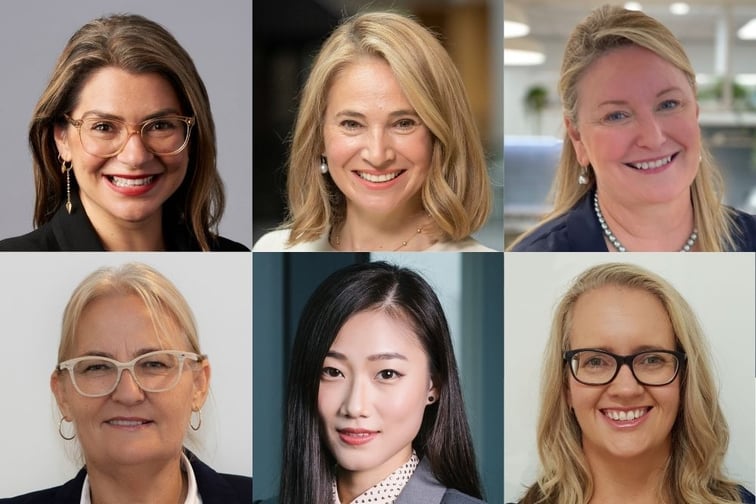
Much has changed when it comes to female representation in finance, but it’s clear more needs to be done. Six women in broking and senior business roles share their experiences and perspectives from the careers they have built in the industry.
A concerted effort across the industry is needed to both attract women to broking and then ensure they remain in their new career.
The MFAA’s Opportunities for Women report shows that the number of female brokers has fallen by 11.2%, and the proportion of females to males dropped to 26.9% as of March 2020.
That’s why it’s so important to champion female brokers and senior women in finance.
Australian Broker invited Nicole Triandos, head of strategic partnerships, broker distribution at NAB; Simone Tilley, general manager of retail broker at ANZ; and Thinktank regional sales executive NSW/ACT Cath Ryan – along with female brokers and Australian Mortgage Awards 2021 finalists Ditte Westbury, Vivian Wu and Fiona Erquiaga – to talk about their career journeys, the importance of female mentors and support networks, and how the industry can encourage more women to become brokers.
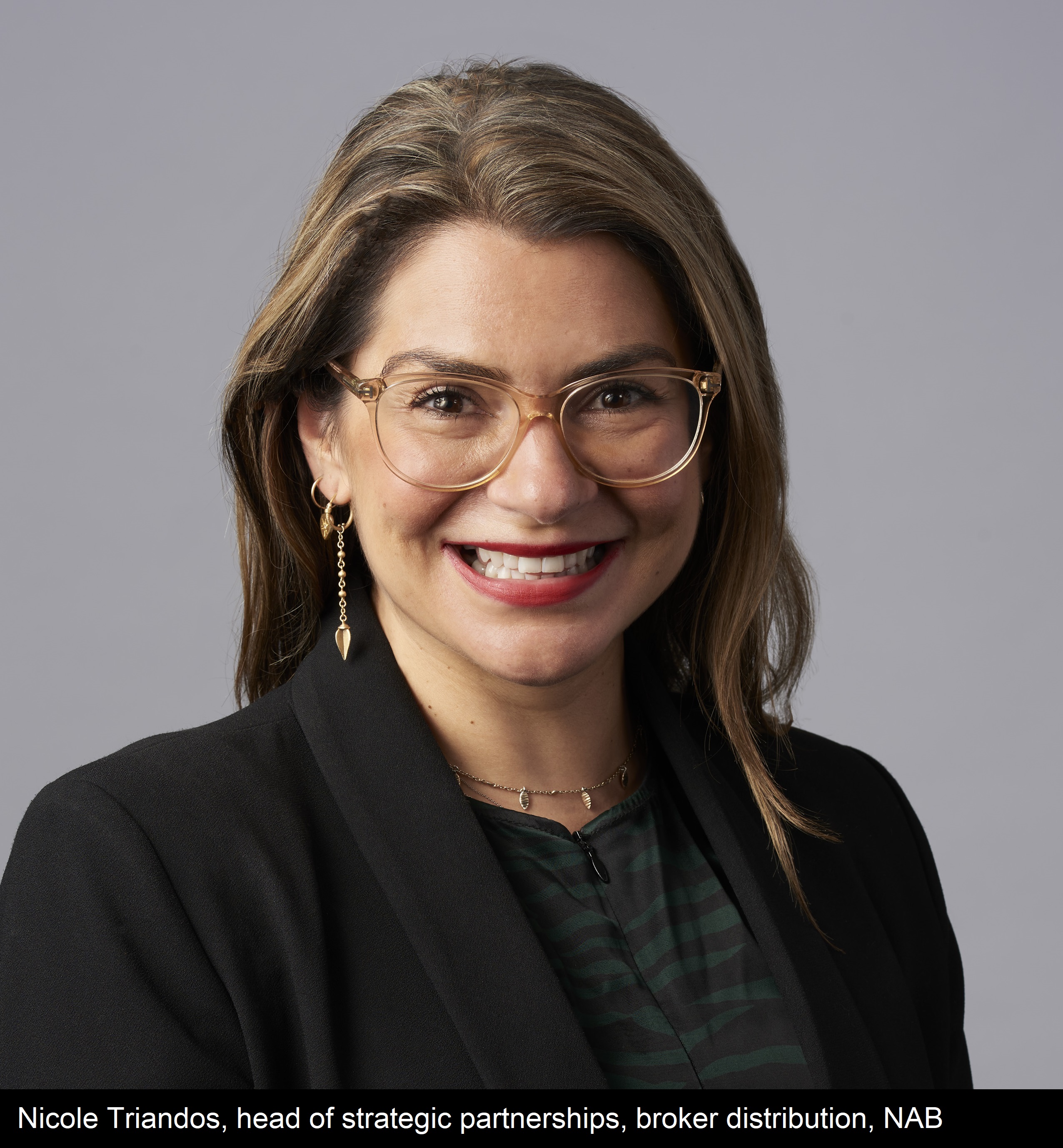 Nicole Triandos has worked in the banking and finance industry for more than 20 years.
Nicole Triandos has worked in the banking and finance industry for more than 20 years.
“There are two ways to go about your career; you can either choose an industry or choose a profession, and I always knew I wanted to work in a bank,” Triandos says.
“In the early days, there were hardly any women in leadership positions. The opportunity was there for the taking, and I was ready for it.”
Triandos says she relied on her personal core values that were instilled from a young age.
“Respect, responsibility, passion and vision. In many ways my parents have been a constant source of inspiration; my father
is a natural leader, and my mother has always shown great strength and perseverance.
“Quite often I have been the only woman in the room, so building mutual respect has been a huge part of my career journey.”
Triandos started her banking career in marketing, working alongside “some amazing women and role models”, including
Lisa Henderson, who was GM of marketing for ANZ Investments at the time.
“Going forward, we need to place more emphasis on women supporting other women. There is more than enough room for women to collaborate, share and grow together by getting excited about each other’s success,” Triandos says.
“We now also have more female role models to act as inspiration for the next generation of brokers and bankers. Through networking, education and role models, the shift in the balance will continue to build momentum.
“Learning to step away from perfectionism and ask for help was a significant turning point for me. The broking industry is so friendly and full of supporters who are more than happy to have a coffee and share tips and tricks about the industry, starting a business or progressing your career.”
Triandos says NAB understands the importance of having an inclusive workforce and is backing women across the business to support other women at all stages of their careers.
“Banking and broking must adapt and continually lift standards and build greater flexibility into the way we work.”
Half of NAB’s workforce are female and 36% of its executive management are women. NAB was named the 2019–20 Workplace Gender Equality Agency Employer of Choice for Gender Equality and was included in the 2020 Bloomberg Gender-Equality Index.
Triandos says the bank is committed at every level to having 40–60% of either gender represented, and last year the NAB board approved new measurable objectives for achieving gender diversity by 2025.
Triandos has seen women at NAB prospering in their careers and supporting others to do the same. She points to Rachel Slade, group executive, personal banking, and chief marketing officer Suzana Ristevski as two examples.
Triandos describes Slade as pragmatic with a personal touch, while Ristevski has been a champion for change, leading the inaugural AFL Women’s sponsorship for NAB.
“Rachel is raising a family and juggling one of the biggest executive roles in the bank, but when you pop her a note, she will pick up the phone to check in and say hi.
“I respect and appreciate these women and how they are creating meaningful change for women and other minorities in banking.
“By championing women, we hope to set a clear example of how we can create gender equality across the banking and broker sector and the community.”
NAB runs dedicated Women in Finance events and offers training and education initiatives such as the NAB Digi PD Day. It also runs NAB Pride, supporting people to be who they are, no matter how they identify.
Triandos says brokers need a full range of skills to deliver the best results for their customers.
“Generally speaking, women often have better developed soft skills and are able to cater to their clients’ needs with more understanding and consideration.”
As COVID-19 has led to the introduction of virtual meetings, digital tools and flexible work hours, Triandos says it’s an opportune time to attract more women to the industry, including by supporting re-entry pathways and job sharing.
“I think the opportunity for NAB, small businesses and aggregators is to ensure they have an inclusive culture which promotes diversity and flexibility. Stepping outside of the traditional banking and broking boxes to encourage under-represented groups to take part is vital.”
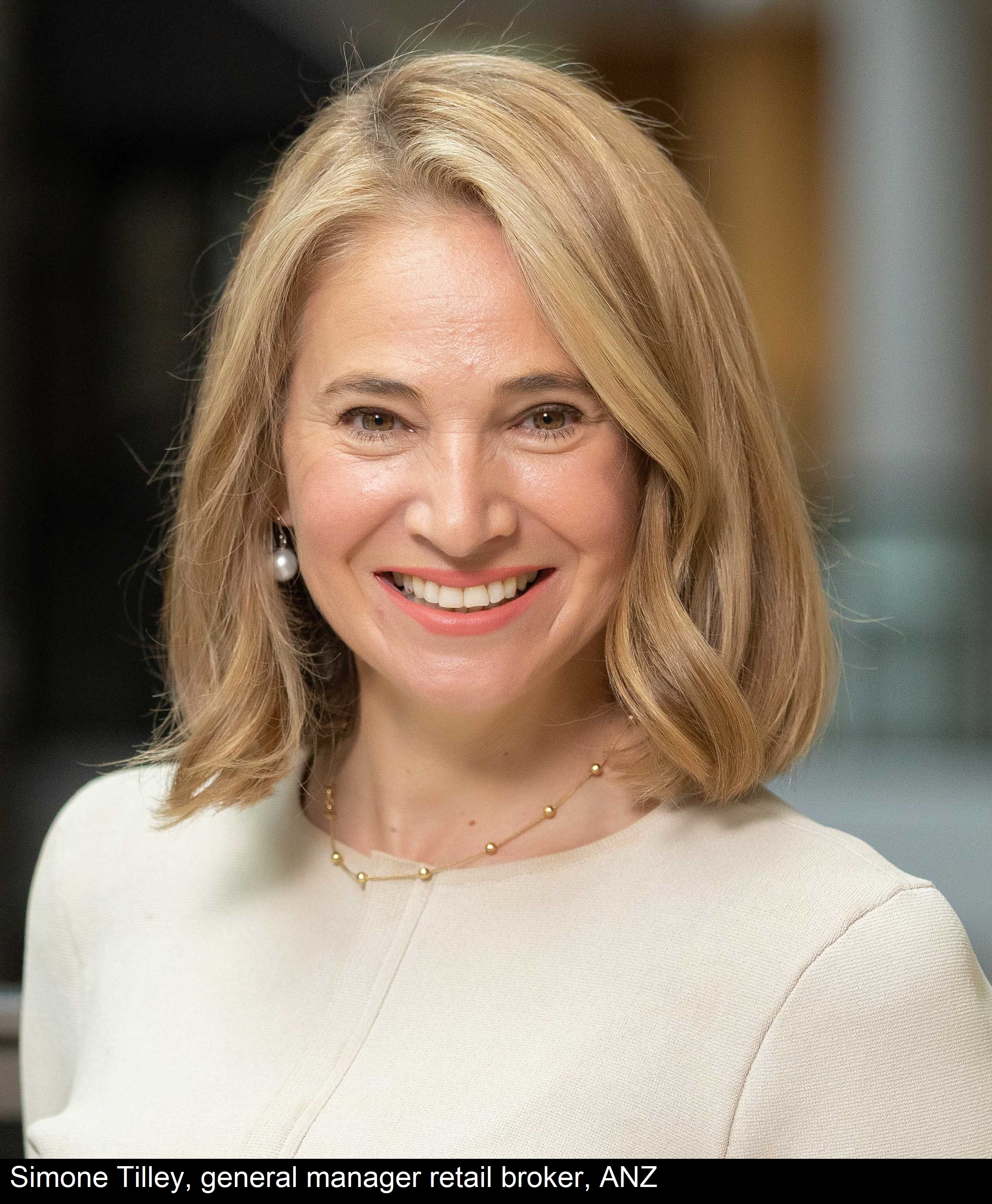 Simone Tilley has been in the finance industry for 25 years, with 11 of those spent at ANZ.
Simone Tilley has been in the finance industry for 25 years, with 11 of those spent at ANZ.
“When I began my career in agribusiness, it was a very male-dominated domain, and in many cases I was the first female bank manager that farmers had encountered,” says Tilley.
“My mother was an entrepreneur, and I learnt a lot at an early age from her courage and determination.”
Tilley says there has been progress when it comes to women on executive committees and boards, but it’s not enough.
“If we want more than incremental gains, we need to be strategic about where we focus our efforts to create a ripple of change across the industry.”
Tilley says it is “unquestionably valuable” for females to have a network of sponsors and peers, particularly at a turning point in their business or career.
ANZ believes that being an organisation that reflects the community in which it operates is an important way to build strong relationships with customers, make better business decisions and earn community trust.
Tilley says ANZ is proud to be a signatory to the 40:40 Vision initiative, which seeks to achieve gender balance in senior leadership at ASX 200 companies by 2030; and to the Diversity Council Australia’s #IStandForRespect campaign, committing to stand against gendered harassment and violence.
ANZ also has partnerships with industry bodies to promote gender balance and improve outcomes for all genders, including Chief Executive Women, the Diversity Council of Australia, and the MFAA’s Opportunities for Women.
“Through our ANZ Doyenne program, we’re encouraging more women to become brokers and to help retain talent in the industry.
“More broadly, it’s important to highlight the economic benefit that diversity can bring to our industry.”
Supporting men to access paid parental leave and flexible working arrangements is also critical to enabling women’s participation in business, and ANZ backs this.
The bank recognises that education and training can lead to improved diversity outcomes, and Tilley says it has consistently partnered with aggregators and brokers to support initiatives that provide the tools and encouragement for female brokers to be successful, such as the ANZ Doyenne program.
Established in 2018, the ANZ Doyenne program is run in partnership with Notable Media. It aims to raise the visibility of female brokers and drive a more balanced representation of voices in the industry.
Tilley says the program connects participants with a network of like-minded women in the broking industry and provides them with a greater understanding of the media landscape, along with the skills to enhance their professional profile and the opportunity to expand their network.
“Since the program began, we have seen a real shift in how female brokers are represented in the media. We’re now starting to see greater recognition of the value female brokers add to the industry and more opportunities for them to share their insights with others.”
Barriers to women entering, participating or progressing in the industry include a lack of opportunity for development and advancement, a culture that is not inclusive of women, as well as safety concerns and stereotypes, beliefs or expectations around gender roles.
ANZ has implemented initiatives to address gender balance, says Tilley. These include gender balanced recruitment practices; targets to boost women in leadership roles; conduct and ethics policy frameworks that set expectations around a safe and respectful working environment; and programs, such as ‘Return to Work’, that aim to remove the barriers for those trying to return to the workforce after a career break.
Tilley says flexibility is another way ANZ builds an inclusive workplace. When the bank launched its All Roles Flex initiative in 2015, “our approach was any role, for anyone, for any reason”, she says.
In response to COVID-19, all roles or job types have now been categorised into three forms of working: Workplace First, Remote First and Blended.
“Most of our employees will work in a blended way – two to three days in the office, and two to three days remotely.”
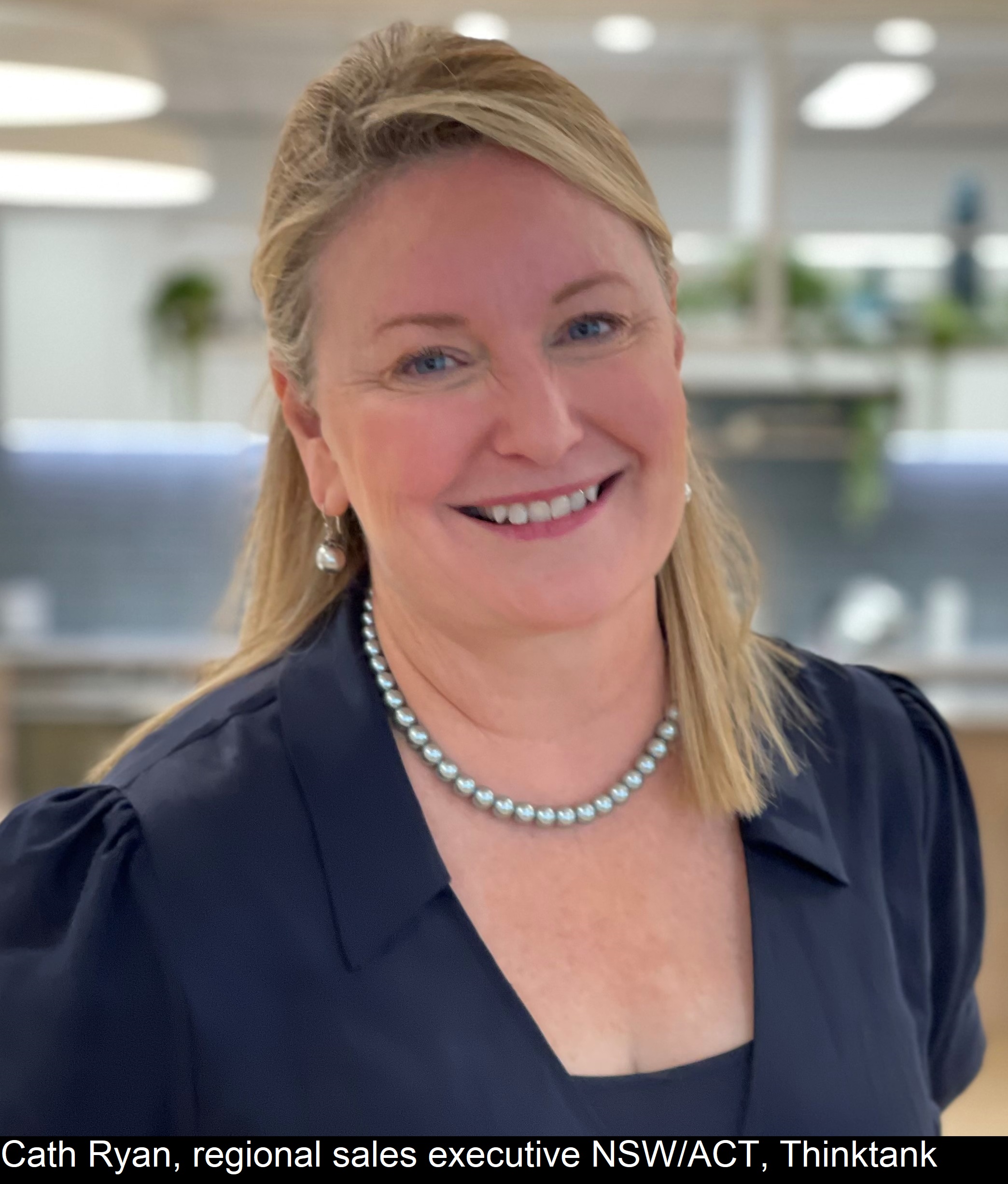 Cath Ryan celebrates 30 years in the finance industry this year.
Cath Ryan celebrates 30 years in the finance industry this year.
“Starting as an optimistic graduate at Westpac, I commenced my career in commercial banking, later working in corporate and institutional roles through to my current position as Thinktank’s regional sales executive for NSW/ACT,” Ryan says.
“Thirty years ago it was common to be the only female at a meeting, and in a whole department. But you could see change was starting to happen. For example, in my graduate intake there was a 50-50 split of males and females. It indicated that society’s expectations were beginning to shift to create opportunities for women in finance. Although still a work in progress, each year gathers more and more momentum.”
Like Triandos and Tilley, Ryan says her mother is a great inspiration.
“A single woman in the 1950/60s, she built a successful business from nothing, applying sheer drive and determination to go against what was expected by society at the time.
“I also credit my success in finance to all the wonderful people who have supported me – mostly forward-thinking men – that believed in me and helped build my career pre and post having children.”
Ryan says the industry networking groups for women do an incredible job of providing pathways to support women and their careers.
“Creating strong relationships with aggregators, professional networks and lender BDMs is the best way for a female broker to quickly break into the industry.”
Thinktank is known for its great culture and people-oriented approach, including developing female leaders, Ryan says.
“Currently, half of our senior management are female, including three of the five managers in my sales team being women. We also provide female-focused leadership courses to further support younger women to develop their leadership skills.”
Thinktank believes it’s important to reflect the customer base it serves.
“We also acknowledge that diversity in all its forms is simply better for business, no matter what business you are in,” Ryan says.
She explains that Thinktank’s philosophy is to help brokers grow their businesses, offering expert guidance and education to ensure they always feel supported.
“This inclusive approach resonates strongly with female brokers who are still under-represented in commercial lending.
“Whatever the family dynamic, we continue to see females choosing to take the primary carer’s role and leave the industry.”
Ryan says Thinktank has a key focus on flexibility and creating different pathways back to work, including scheduling workshops at 10am for primary caregivers; running webinars and recorded sessions; introducing digital innovations; and supporting individual working arrangements for those needing a shorter working week.
She says expanding the flexibility and ease of access to education, and organising mentorships and networking groups, will make broking more appealing to women – the Women’s Commercial Finance Forum is a great example.
Thinktank supports women in business initiatives, and recently sponsored an event for an aggregator’s top female brokers.
“I know how hard it is for women to break into commercial lending. A few years ago, I approached the MFAA with the idea to create a place for women to develop their knowledge of business lending. From this came ‘Making Good Things Happen’, which offers collaboration to build knowledge and discuss ideas.”
Through this forum “where we can share, laugh and learn”, Ryan has met some incredible businesswomen and says it wouldn’t have happened without the support of the MFAA and Thinktank.
Thinktank can provide the support, education and confidence to open up the opportunities that exist within commercial broking for all brokers.
“One of the best things for me is seeing a new female broker write their first commercial deal, having used their prior knowledge and expertise to grow their business.”
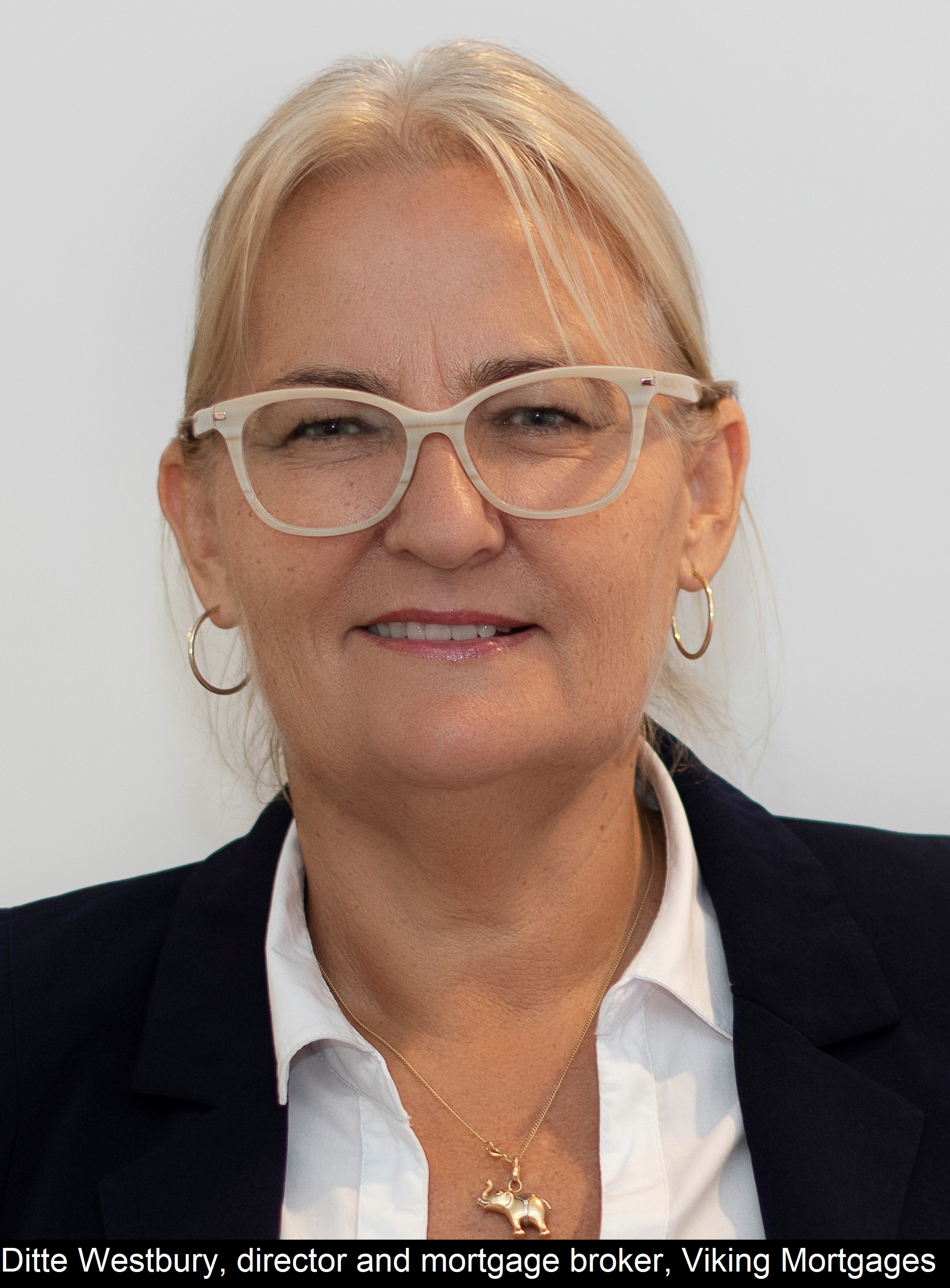 Ditte Westbury has been a mortgage broker for more than six years, since founding Viking Mortgages in Noosa, Queensland, in 2015.
Ditte Westbury has been a mortgage broker for more than six years, since founding Viking Mortgages in Noosa, Queensland, in 2015.
“I sort of fell into the industry because I had a telemarketing firm at the time, and our core business was to contact leads and set appointments for mortgage brokers,” says Westbury. “It made me think that I should ‘just’ become a broker myself and keep all the leads. Little did I know what that meant.”
After being offered a job in mining, Westbury got all her broker accreditations and her Diploma of Finance to start the business, and for a while she worked at both jobs.
“This was a good way to ease into the industry, because the reality is it takes a while before you start making any money. Since the beginning I have had a real passion for the industry. I love helping people, and this is a wonderful way to do this.”
Westbury says she was very inspired by her mentor, Tracie Palmer.
“She is a successful and compassionate broker, and she really helped me to set up my business properly with the right goals and systems and, more than anything, the right attitude.
“I have always been the type of woman that believes we can do anything, and it never occurred to me that it was a male industry until I went to my first conference and saw a room full of brokers in suits and a few women in between.
“The female brokers that I know are all very supportive of each other and encourage other women to join the industry.”
Westbury says it’s important for new brokers to have successful female brokers they can learn from and be inspired by.
She says broking has the image of a ‘man’s job’, and traditionally men were thought to be better with numbers, maths and finance.
“The reality is that women are very well suited to this job because it’s not about being ‘good at numbers’; it’s really about understanding people and what they need, taking the time to listen and to have empathy for our clients.
“One of the things that my clients love about me is that I remain calm throughout the process, and when they are stressed to the max I calm them down, and they can go on with their day knowing that the process is in good hands.”
Westbury says there are not many industries in which women can control their hours, spend time with their children and still have thriving careers.
“I know a lot of brokers are finding it hard with the added compliance, but if we just accept it and include it into our process so that it just become a habit, it will slowly become the norm.
“We are so lucky to work for ourselves without having KPIs and set hours and targets to achieve. The only targets and goals we have are the goals we set ourselves, and we can achieve great things whilst working around our families.”
Westbury says this message needs to be conveyed to women who are considering moving into the industry.
“It’s scary to leave a secure job and go out on your own, but the long-term results are really worth it after a few years of low income and hard work.”
Westbury hopes to hire a female broker next year.
“I will encourage someone that has the right attitude and a similar culture to me to join the business, and then I will mentor them for two years so they can get as good a start into the industry as I did.”
 Vivian Wu has worked at Sydney brokerage Ayers Financial Group for six years.
Vivian Wu has worked at Sydney brokerage Ayers Financial Group for six years.
“To many people’s surprise, I spent my early career in the beauty and fashion industry whilst I worked for LVMH Group until 2015,” says Wu.
“At the time I met a client in the banking industry. After a few rounds of interesting and inspiring discussions, I decided to make a bold move, joining a start-up brokerage firm in the capacity of mortgage support. It was a steep learning curve. A year later I managed to transition into the mortgage broker role successfully. Now the rest is history.”
Wu says she has noticed more young female brokers emerging, although the number remains soft compared to male brokers.
“It’s a very competitive and fast-paced industry; to succeed female brokers are required to stay resilient, mentally strong, as well as being adaptable, often juggling between family commitments and the pursuit of their career – hence the art of finding balance is the key.
“Fortunately, I’m operating in an environment that encourages high achievers, with tremendous support provided on both professional and personal fronts. It’s been an amazing experience working with a team that constantly pushes me against all odds to succeed.”
When it comes to inspiration, Wu says she has been reading lots of books, including Lean In: Women, Work, and the Will to Lead by Facebook COO Sheryl Sandberg.
She says many young women prefer a stable, predictable and less stressful career path when it comes to raising children, and they avoid the role of risk-taker.
“Consequently, there are missed opportunities for young women to dream big.”
It’s very beneficial for female brokers to form strong support networks with other women so “we can learn from each other”, says Wu. “Everyone will benefit from the experience of those who have gone before. Collective and peer learning are better ways of expanding perspectives and forming meaningful connections.”
Wu says traditionally women have taken on supportive roles in business instead of being decision-makers and leaders.
“The trend has been overturning in the past decade, although at a slow pace. There are initiatives that can be implemented across the industry to attract high-quality female brokers.”
Well-established brokerage firms can provide structured guidance and support, Wu says, while designated career progression, such as moving from mortgage support or loan writer to mortgage broker – allowing time for deep industry learning and expanding personal networks – is also important.
Another initiative, she says, is remuneration reform.
“As the industry continues to evolve, more brokerage firms can consider adopting the PAYG model to offer a sense of financial security to new entrants, either male or female, with appropriate training, support and business leads to nurture promising young professionals.”
The broking industry offers ample flexibility and financial security for women who manage to make it through the first two or three years of hard work,
Wu says, including the ability to meet family commitments during business hours.
“The challenge then shifts from lead generation to enhancing workflow efficiency to serve more consumers without sacrificing personal touch and service excellence.
“For successful operators this is a very rewarding industry, especially the profound satisfaction derived from helping clients to secure their most significant asset in life.”
Female brokers also have unique personality traits, such as empathy, resiliency, the ability to listen, and calmness, without lacking competitiveness and drive.
Wu says Ayers Financial Group has a close-knit team of high-performing brokers, and operating in a group environment is beneficial given the complicated and constantly changing lending landscape.
“Group management understands female staff ’s needs and often promotes female brokers by recognising their outstanding achievements. It creates healthy competition within the team to drive overall business performance and to explore one’s full potential.”
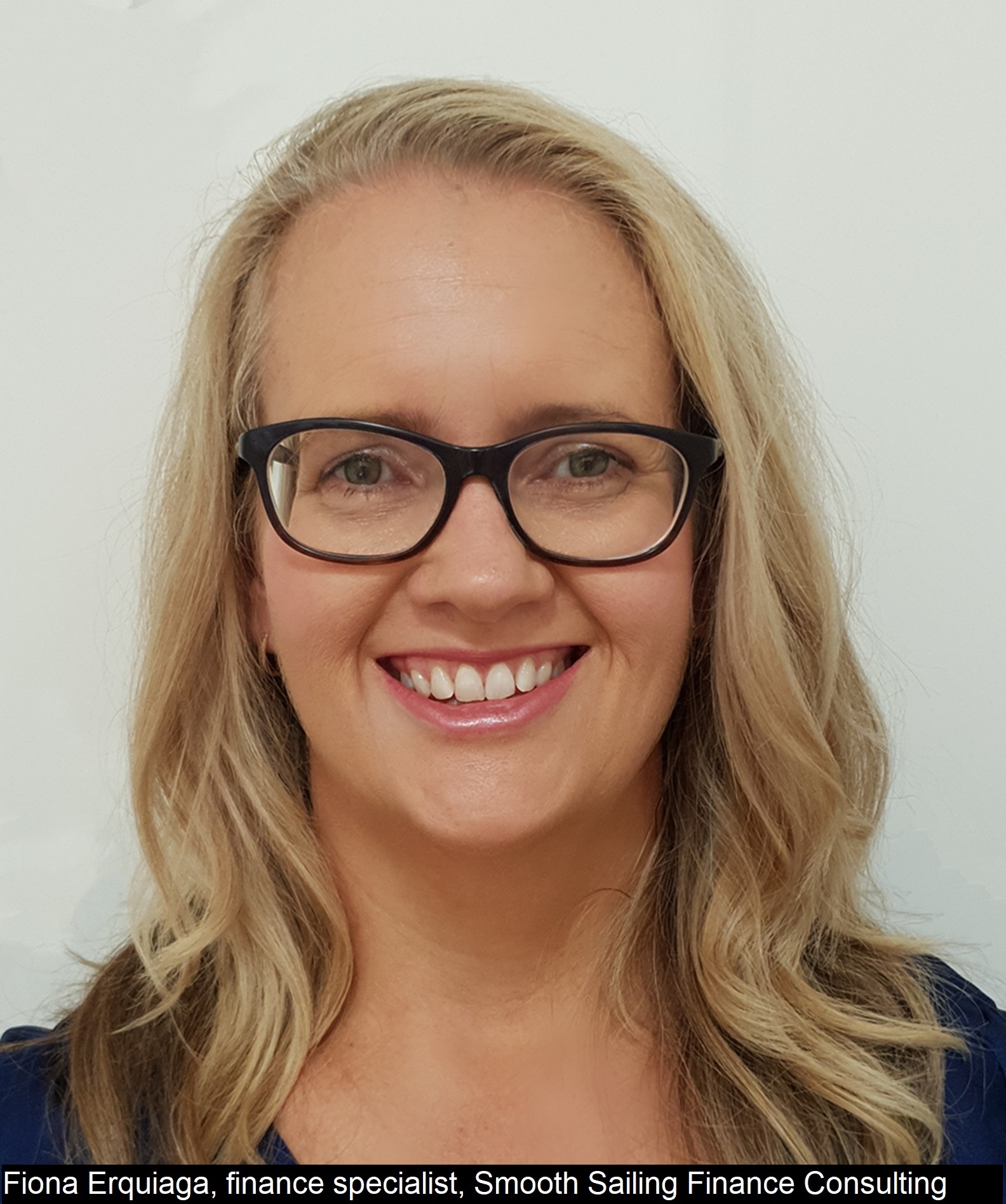 Fiona Erquiaga runs her own brokerage, Smooth Sailing Finance Consulting, in Coffs Harbour, NSW.
Fiona Erquiaga runs her own brokerage, Smooth Sailing Finance Consulting, in Coffs Harbour, NSW.
“I have worked in the finance industry since 2002, for a number of banks in agribusiness and in commercial banking roles,” Erquiaga says. “I became a broker in late 2017 and established my own independent brokerage in early 2020.”
Erquiaga says when she worked for banks, women were mostly in support roles, and there weren’t many opportunities for advancement.
“However, I have found the broking industry to be significantly different, with many women in leadership roles within the industry – from lenders’ and aggregators’ business development managers to other brokerages that have been established and managed by women.
“Of the five state managers at my aggregator [Connective], three are females, and roughly 50% of the BDMs are women.
“I feel that the broking industry doesn’t have significant gender inequality issues as others do, and I have always felt that I’ve been treated equally and respected as a female broker.”
Erquiaga says that, given the low number of women in broking and the fact that she lives in a regional area, she didn’t know any female brokers before joining the industry.
“I did have a lot of businesspeople in my network who demonstrated that being female wasn’t a barrier to growing a successful business,” she adds.
“Having a strong support network is critical for any business, even more so for solo business start-ups such as mine, where it’s not possible to cover every aspect of the business yourself.”
Realising that it was best for her business that she concentrate on finance, Erquiaga engaged other experts to look after IT, marketing, accounting and legal matters.
“I developed a good network of these types of businesses and services locally through LinkedIn Local, an initiative started by Anna McAfee, who lives locally, and which has grown into a global movement … through this I have also developed a number of referral partners which have generated further business for me.”
Erquiaga says one of the biggest barriers to becoming a broker is the time it takes to get accredited, generate leads and get applications approved and settled, while facing months of low or no income.
“Perhaps this is an area in which aggregators or even lenders might consider investigating potential cash flow support for start-up businesses that could be repaid over time.”
However, broking is a great fit as a career for women, Erquiaga says, particularly those juggling family responsibilities or personal goals and requiring a flexible work-life balance.
“One of the most attractive features of being a broker is having flexibility of working hours that you don’t get when working in a bank.
“Broking is also one industry in which there is no gender pay gap, since brokers are paid on a commission basis, which is uniform across the industry.”
Women bring certain qualities to broking, Erquiaga says, such as a focus on finding solutions to problems, and the ability to multitask as well as build relationships with people.
“I believe this is the key to long-term success – I have many clients who I’ve had relationships with for over 15 years, and they keep returning to me with their next project and referring their friends, family or colleagues to me.”
Erquiaga says in FY21 over 40% of her business was repeat business from clients wanting to upgrade or buy their next investment property, and 45% was from referrals by existing clients.
